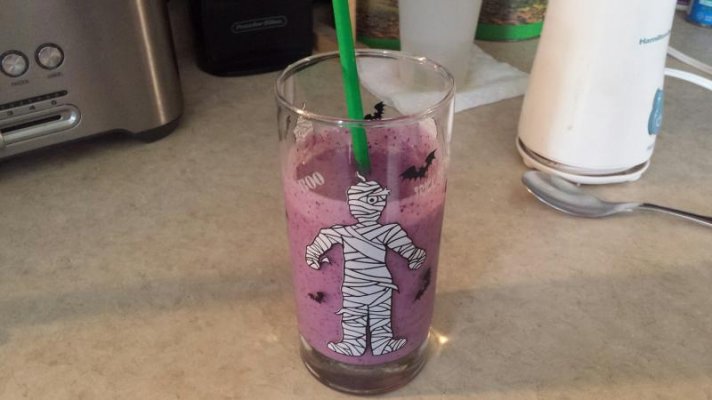Hi Linda,
My wife was diagnosed 5 years ago with type 2 diabetes. At the time her blood sugar was in the high 200's and A1c was over 9. She was put on a Gliperide/ Metformin combination, a blood pressure med, and a statin. She also had symptoms of neuropathy in one foot--something she had never mentioned.
We had seen first hand how bad type 2 can be and I wanted to do everything that was possible to help her not share in that fate. I should mention at this point I'm the chief "galley slave"in our house. I tried to find out as much as I could before the meeting with the dietician a few days later, because it was all new and food seemed to now be the enemy.
The plan she followed was a counting carb diet, I believe it was 45 per day, and using plate proportions of mostly veg and limiting meat to 3 oz portions, things all recommended by the dietician. I also went on the exact same diet as she did for two reasons. First I wanted te be supportive and make it easier for her and secondly I'm too darn lazy to make 2 separate meals. Most of our food was home made and made from scratch, which was pretty much how it was before--it was just different foods and prep. For example we found that she could still have homemade pizza with a very thin crust, or some bread by using 50/50 white and whole wheat flour and have her glucose stay within reason.
I should mention we used the USDA Nutritional Data base as our reference for carb information. I have not compared this to Cronometer, so I can't say how it compares.
We had settled into a routine, at least food was no longer the enemy.
18 months later, about 40 -50lbs lighter Her A1c was 5.1 her avg glucose readings were under 100. Her meds had been adjusted to a Glipizide/Metformin combo and I would have to ask about lower dosages of the other two. She'd had a few episodes of hypoglycemia so that's what had led to med changes.
6 Months after that she had been eating a whole food plant based diet (vegan) for a couple of months. I had sort of found my way to eating that diet after my own medical problems and had encountered something about it possibly having a positive effect on neuropathy and I asked if she'd want to try it for a couple of weeks to see. She said she'd give it a go. After a few months it was time for her check up and this time the doctor took her off all her medications. Her numbers are about the same to this date, and she no longer even checks her glucose levels.
Did the WFPB diet get her off the meds? Not per se. She did take a few more pounds off, but what really did it was this: At her check up 6 months previously the dr asked what's you blood sugars run, she said " about 100" I knew they weren't that high, so when she had her next appointment we took our records--we kept a log. Again she was asked the question, she gave the same answer-- then I showed him the log. We had data--it was good enough to take her off the statin and glip/metformin meds. Blood pressure was really good and it was the next visit she was taken off that med as well.
She now has maintained her weight and has stayed off meds, and luckily her foot has improved, though there is some numbness. She now eats a vegetarian diet with a little cheese on her pasta or pizza. She isn't strict about the vegetarian, but has only had couple of salmon patties in the past few years---so it really is very little.
Now our dr literally says, " You don't have it" when refering to her diabetes.
I don't know if you're familiar with the theory that insulin resistance can be caused by fat build up in the muscles, if not Neal Barnard MD has a good explanation and you can find that at PCRM.org or on youtube--if your aren't familiar and are interested.
To sum up this the ADA/ dietician recommended guidelines worked for my Wife. The WFPB diet may have helped, but if one's goal is maintenance it's a good place to start. At first it was hard enough getting into the swing of it. I can't emphisize enough, it most likely her weight loss and reduction in fat in her diet that was probably the most helpful. She recently lost another of her sisters to complicatons from type 2 and has two remaining siblings. One has type 2, the other doesn't--the difference between the two isn't luck it's lifestyle( at least in her family)one is over weight and has been for decades the other has always been active and stayed trim.
The best of luck to you.
Bob


